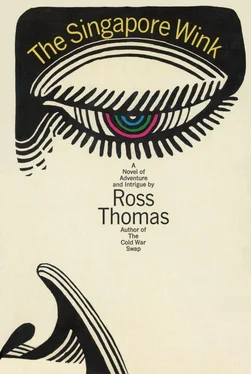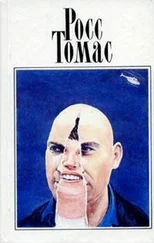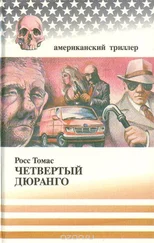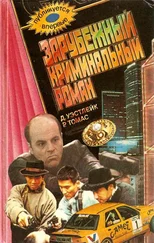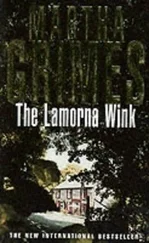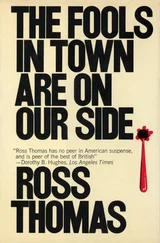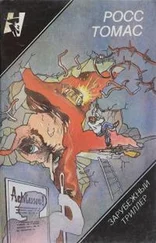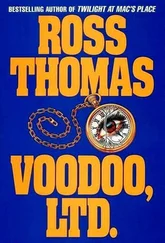“What if it needs parts that you can’t find?”
“Then we have them made to the original specifications — and that can get expensive.”
Cooper nodded again, not so happily this time, and drank the last of his martini. “How much? I mean for everything.”
“I wouldn’t even guess. As I told you over the phone, we charge by the hour for actual work performed. Our rates are high, but we guarantee authenticity. We had one car — a 1934 Hispano-Suiza that we kept for eighteen months. The final bill was almost twelve thousand dollars, but it was in sorry shape when we got it.”
Cooper flinched at that, but not too much, and then nodded quickly. He seemed to like to nod a lot. “They say you guys do the best work on the coast. Maybe after you look at the car you can give me an estimate.”
“We’ll be able to give you a minimum price. The maximum will depend upon a number of things.”
“It was a hell of a car,” Cooper said.
“Not many people remember it,” I said. “They get it confused with the Stutz Bearcats of the twenties.”
“I remember it all right,” Cooper said and signaled for another drink. “My old man used to drive one. I got to ride in it sometimes.”
“Your father had good taste.”
“My old man was a chauffeur for $17.50 a week in 1933,” Cooper said in a low, flat voice. “The only time I got to ride in it was when he drove it down to get gas or something. He took care of six cars. And then he got fired.”
There was more to the story, but I didn’t encourage it. I didn’t have to.
“Six months ago I read in the papers that the last of this family had died.”
“The one with the six cars in 1933,” I said.
“Right. So I took a wild-assed chance and called my lawyer in San Francisco and told him to find out if this guy who died still had the Stutz. He was that kind of a nut, or recluse as the papers called him. My lawyer checked into it and found that the car was still sitting in the garage. I told him to buy it. Well, it’s taken them this long to settle the estate, but I got it.”
“It must mean a lot to you,” I said.
“You’re right, Mr. Cauthorne, it does,” he said and gazed over my left shoulder at some distant spot where for all I knew he kept a private vision of his slightly more than two tons of nostalgia.
After I told Trippet about Callese’s call he returned to the back of the shop and I spent the rest of the afternoon in the office cubicle. I used the dictaphone for half an hour to answer some correspondence; successfully tried out my sales resistance on a man who wanted us to adopt a simplified bookkeeping system that I didn’t quite understand; talked to three sixteen-year-olds about the Cadillac; reminisced with a seventy-two-year-old pensioner about some cars he had once owned, and spent a half hour with a prosperous plumber in mapping out a campaign to convince his wife that the Cadillac would be a sound investment I also answered the phone six times.
At five o’clock I pushed the button under the desk twice to inform Trippet and our three employees that it was time to quit. I waited for Trippet to get rid of his siren suit, wash up, and wander out front to join me in our usual drink at one of the neighborhood bars.
“The wife and I are dining out tonight,” he said as we settled into a booth in one of the taverns. “Afterwards I thought I might drop by to see whether we’re still in business.”
“If we’re not, give me a ring.”
“I’ll do that.”
Over the drinks we talked about the hamburger king and his Stutz and then I asked Trippet if he would like a ride home.
“No thanks,” he said, “I think I’ll walk.”
It was a little over four and a half miles to his Beverly Hills home and every night I asked him if he would like a ride, and every night he said he thought he would walk. Sometimes his route carried him a mile or so out of his way through the Farmers Market, but he walked it religiously, a solitary stroller in a town that rolled on wheels.
After leaving Trippet I drove up to Hollywood Boulevard, turned left and followed it to Laurel Canyon. I lived in my father’s house on a dead-end street off Laurel about halfway up to Mulholland Drive. It had been built on the side of a hill just before World War II and it still boasted something of a view. I lived there because it was paid for, the taxes were cheaper than rent, and because it was too much trouble to move. I parked the Volkswagen, checked the mail, and let myself in. The house somehow seemed emptier than usual and I ran down a mental list of young ladies who wouldn’t mind sharing a steak and a bottle of wine. I tried a couple of numbers and when I got no answer I said to hell with it and went into the kitchen where I took a small T-bone steak from the refrigerator and put it on the drainboard to age for an hour or so. Next I turned on the oven, smeared some butter on a large Idaho potato, wrapped it in a sheet of foil, and put it in to bake. By the time the potato was done, the steak would be somewhere near room temperature. It took another three or four minutes to make a salad of lettuce, tomato, spring onions, oil, vinegar and garlic. On days that the salad proved too much trouble I settled for cottage cheese. Highly nourishing, I understand.
I opened the refrigerator again, took out a bottle of Mexican beer, and brought it into the living room where I turned on the television set to watch the continuing story of Vietnam. It was another grim episode. Company at dinner that night was the first half hour of a ninety-minute western with pretensions of serious overtones. Four persons were killed in the first thirty minutes, not counting some Indians and the odd Mexican. I took critical note of a fight in the barroom and thought it might have been a bit more effective if the hero’s fist just once had come closer to the villain’s jaw than six inches.
After the dishes were safely in the dishwasher and the garbage was tamped down the disposal I sat in a chair by the window that offered the view and stared out at the lights of Los Angeles. It came back then as it had done every evening for nearly two years. Once again I was on the stern of the Chinese junk in Singapore harbor and Angelo Sacchetti hung out over the water with a line in his left hand and a cutlass in his right. I made the thrust we had rehearsed, but Sacchetti didn’t parry and I could still feel my cutlass slicing through the rope as if it were a piece of string. And then Sacchetti fell again and I just glimpsed his upturned face and the left eye that closed in a grotesque, knowing wink.
The hallucination, or whatever it was, came along every night around dusk and it was accompanied by a severe case of the shakes and a cold sweat that drenched my clothing. It never happened while I was driving or walking; only when I was someplace where nothing would happen except, often enough, acute embarrassment. It usually lasted for forty-five seconds to a minute.
This was about the seven-hundredth time that I had gone through it. The first time happened after I came back to the States and went out on a stunt job. I froze at the crucial moment and then there was the vision of Angelo Sacchetti, falling and falling in slow motion, and winking that big, broad, almost lecherous wink. I tried two more stunt jobs, but the same thing happened, and after that I didn’t try any more, but it didn’t really matter because the word about my freezing got around and the phone quit ringing and my agent was in conference the four times that I called him. I didn’t call him any more after that and he didn’t seem to mind.
I had seen the film of the accident some forty times. I had gone over it frame by frame, just like the Zapruder film, but it hadn’t helped any, nor did the nine months that I spent going to an analyst. Sacchetti still fell and winked every night.
Читать дальше
